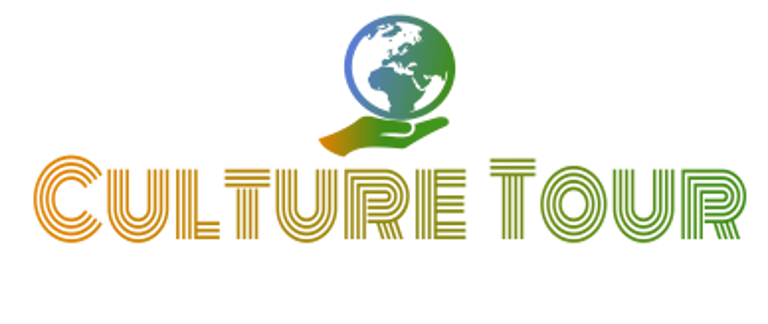Why Ecotourism is a game changer for sustainable Travel?
The advent of the Coronavirus Covid-19 pandemic has engendered a paradigm shift within the purview of tourism. This global health crisis could potentially serve as a poignant awakening for the worldwide tourism industry.
Contemporary circumstances find the tourism sector showing statistical evidence aiming to restore pre-Covid-19 benchmarks.
While the growth of global tourism is promising, it is imperative that we confront the persistent challenge of overtourism, a factor that significantly contributes to climate change.
The awareness of Climate Change is steadily increasing, paralleled by a growing recognition among conscious travellers keen to adopt a responsible behaviour via sustainable travel plan.
Henceforth, emerges the paradigm of the Sustainable and Immersive Tourism Experience (SITE).
This strategic framework, jointly orchestrated by Tourism Boards, DMO’s and tourism stakeholders alike, seeks to conjoin the fabric of rural activities with the tapestry of the tourism sector, engendering symbiosis via the conduit of Small, Medium, and Micro-sized Enterprises (SMMEs).
The SITE project aims at promoting circular economy in line with the United Nations Sustainable Development Goals (SDGs), offering conscious travellers the opportunity to embrace immersive travel experience.
Sustainable tourism and circular economy: this pertains to the tangible outcomes of ecotourism endeavours, encompassing not only economic contributions but also ecological and socio-cultural benefits in a sustainable way.
Ecotourism deliverables, immersive experience: refers to the positive impact of ecotourism upon the travel industry as travellers become mindful and proactive in their efforts to preserve nature and cultural heritage.
Transportation companies: signifies the network of transportation enterprises that participate in facilitating ecotourism-related movement, adhering to principles of reduced environmental impact (horse riding, cycling, trekking, hiking, slow tourism).
Licensed eco-businesses: denotes the entities that have acquired official recognition for their adherence to ecologically mindful practices within the realm of tourism.
Various ancillary services: encompasses a range of secondary services and facilities that enhance the core ecotourism experience, catering to various visitor needs.
Hospitality sector: encompasses the engagement of the lodging sector in upholding environmentally conscientious principles, thereby contributing to the overarching sustainability of ecotourism (ecolodges).
Eco-Suppliers: pertains to the network of providers and vendors that adhere to ecologically responsible production and supply practices, fostering sustainable sourcing.
Agriculture: encompasses the preservation of the soil and the promotion of eco-friendly practices meant to mitigate the climate change.
Farming: signifies endeavours aimed at fostering avian species through conscious management and habitat preservation, often in synergy with ecotourism undertakings.
Fish farming: conveys initiatives centred on the responsible cultivation of aquatic organisms, wherein sustainability is prioritised.
Art and Craftsmanship: alludes to the incorporation of artistic and artisanal elements into ecotourism experiences, augmenting cultural exchanges while fostering environmental awareness.
Rural Cooperatives: refers to collaborative efforts within rural contexts, which encompass not only tourism but also socio-economic development endeavours, emphasising community inclusion.
Empowerment of vulnerable people: signifies the elevation of women and other vulnerable groups through active engagement in ecotourism activities, thereby fostering income generation, inclusion and equity.
Rural Incubators: denotes the supportive environments that enable the incubation of novel ecotourism ventures within rural settings, contributing to local economic diversification.
Rural cooperatives: denotes the necessity to promote inclusive solidarity.
Rural education and training centres: refers to the importance of promoting human values and human dignity through knowledge and equity, helping people achieve their dreams.
Empowering vulnerable people: refers to the capacity of local ecosystems and communities to embrace ecotourism activities without enduring ecological degradation or socio-cultural disruptions, with a positive impact on poverty alleviation.
Harnessing this vision entails the orchestration of rural SMMEs in tandem with established travel enterprises situated within urban areas.
Both the urban enterprises and their rural SMMEs counterparts operate within the aegis of vigilant oversight provided by local Tour Operators, who shoulder the mantle of executing project blueprints, with Tourism Boards and DMO’s assuring qualitative benchmarks, facilitating certifications, and ensuring the integrity of environmental, health and safety protocols.
The paramount objectives underlying the Sustainable and Immersive Tourism Experience (SITE) encompass:
> The empowerment of vulnerable people.
> The preservation of fauna and flora.
> The fostering of revenue generation.
>The alleviation of poverty.
> The incubation of rural tourism opportunities.
> The cultivation of domestic tourism prospects.
> The mitigation of overtourism.
> The nurturing of ecotourism expansion.
> The fortification of tourism resilience.
> The necessity to overcome climate change challenges.
In effect, the foregoing framework articulates a holistic vision that converges environmental, socio-economic, and cultural considerations within the contours of a reimagined tourism landscape.
For the sake of sustainable Travel !
